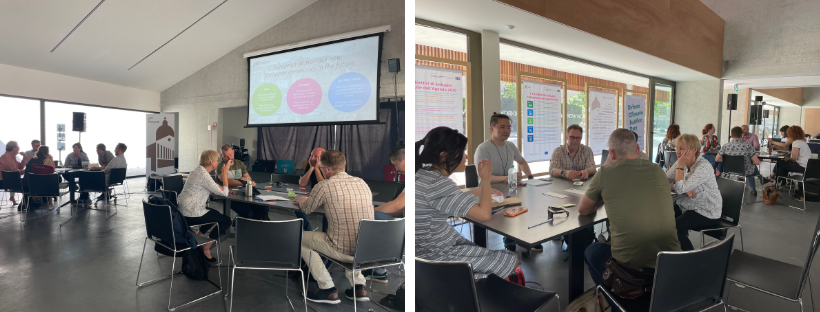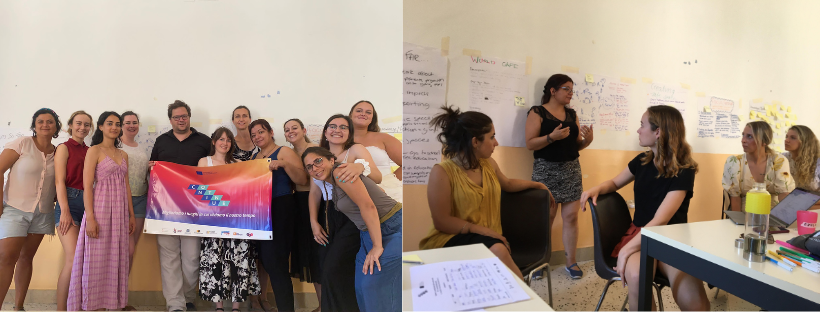IS THERE A CRISIS IN DEMOCRACY? LET’S MAINSTREAM THE FRINGE PRACTICES…

Back in May, the EUARENAS project held its first Community of Practice (CoP) in-person session as part of a project meeting in Reggio Emilia. The CoP is made-up of folk from research, services, policy and communities across Europe and the group is interested in learning and developing their knowledge about how democracy works in local communities, and how citizens (in the broadest sense of the term – i.e., people who live in a place) and communities can be more involved in local democracy. As part of this session, we delivered an introductory activity that looked at the future of democracy in Europe – this blog shares with you some of the ideas from this session…
Democracy Now
When reflecting on what democracy feels like where they live and work, the CoP members noted points such as:
- Citizens feel removed from the political process – they perhaps don’t care or feel powerless to affect change
- There was a sense that ‘European identity’ is being diminished
- Growing complexity administration and bureaucracy causing blockages and disconnect
- Truth and trust doesn’t feel valued
A key question being posed, was is democracy really working? Are current structures really supporting the practice or principles of social equality – or are they unwittingly helping maintain inequalities?
The future we’d like to see
Given that some of the points above point to a ‘crisis in democracy’, CoP members had some interesting ideas about how this could look very different. These ideas included:
- Citizens having more agency and involvement in democracy – moving to ‘deep democracy’, going beyond just voting and being involved in deliberation and decision-making
- Having a ‘value-driven’ democracy
- Local government with the competencies to support new ways of working with citizens and involving them in local democracy
Ideas for getting there
So, given that the CoP members would like to changes from the current situation, we spent some time thinking about how we might get there. Thinking and suggestions in this area were:
- Mainstreaming of existing practices such as participatory budgeting, citizen assemblies, crowdsourced law – so that these become the new ‘status quo’
- Adopting test and learn approaches as a way that experimentation can be done and actively learned from
- Find ways of celebrating and connecting up the small changes that are taking place – this will help people see that progress is being made, even when it feels like things are changing too slow
The full results of this workshop will be combined with more detailed work done with residents of different cities across Europe to produce an insight briefing focusing on how people across Europe are currently experiencing democracy and their ideas for the future.
This will be released in Autumn 2022 – watch this space!
